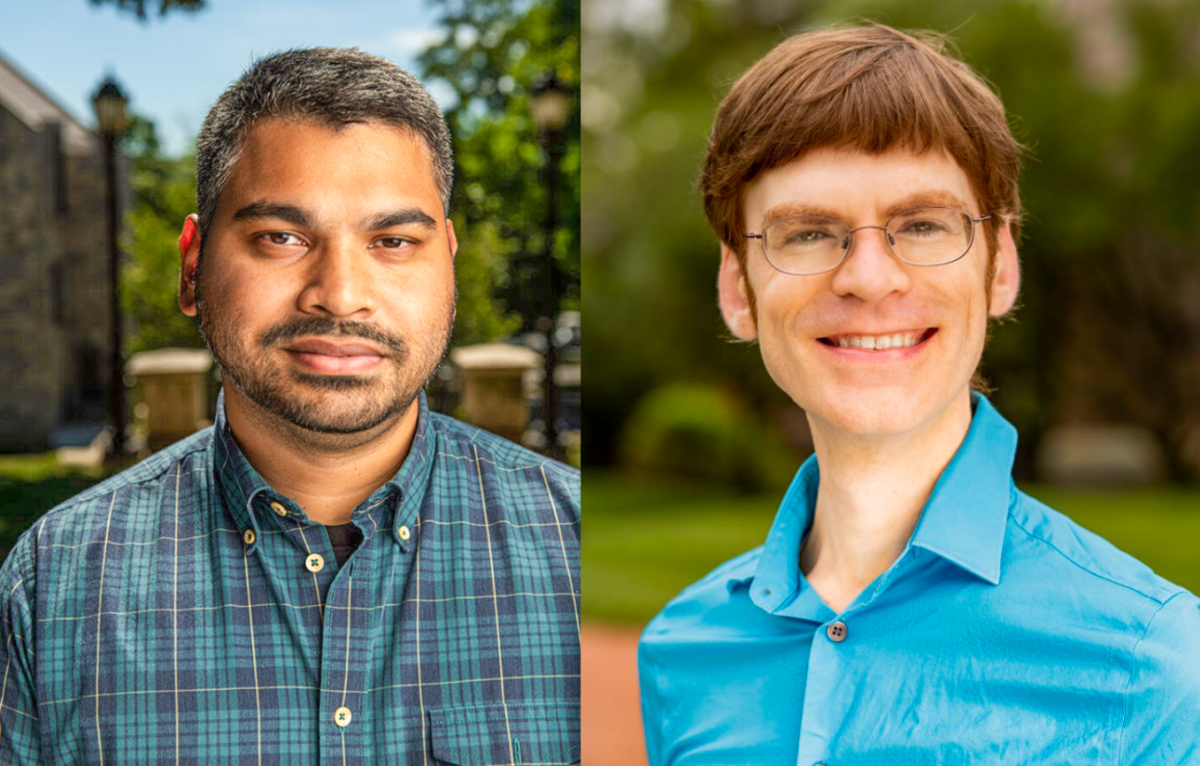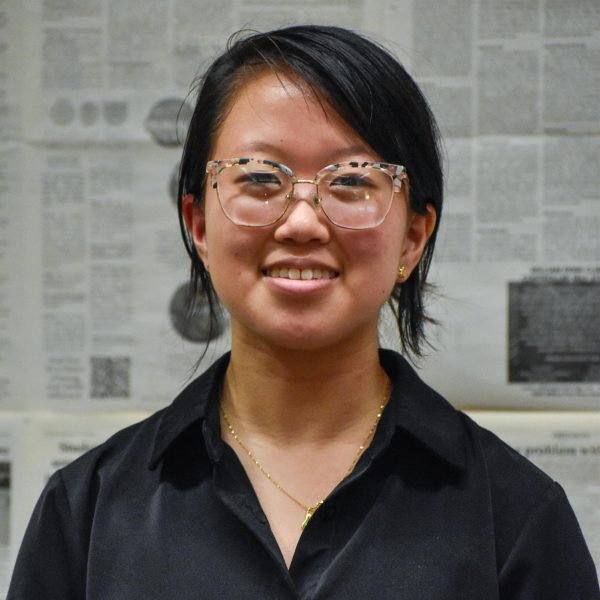In July, associate professor of physics Brooks Thomas and assistant professor of mathematics Farhan Abedin ’11 received $150,000 and $184,593 respectively from the National Science Foundation (NSF). NSF supplies grant money for scientific research that betters the community, and the grant is one that several Lafayette professors have received in the past.
Thomas has been teaching at Lafayette for seven years and is now a three-time recipient of the grant, but is still excited about this honor, which will allow him to travel to further his research. As a theoretical physicist who works primarily with dark matter, most of his research takes place on computers that run simulations rather than lab materials.
“I’ll really be able to put it to good use to advance my research,” Thomas said. “I was totally excited, absolutely overjoyed.”
David Nice, the physics department head, knows the competition that comes with receiving the grant – only 28 percent of those who apply are selected.
“[It] is honestly just a little bit of a nice acknowledgment from peers,” Nice said. “You know this is good science because grants like this are pretty competitive.”
Professor Derek Smith, the acting mathematics department head, wrote in an email that he looks forward to the work that Abedin’s grant makes possible for undergraduate students in the upcoming years.
“I’m thoroughly delighted for Professor Abedin, and for the undergraduate students who will get to work with him over the next few years through this grant,” Smith wrote in an email. “[Abedin’s] success is a testament to the high-quality research he has done in the past and his vision for future progress.”
Abedin also plans to use the funds to travel and teach. His research studies optimal mass transportation, involving economics and the movement of digital images, along with the logistics of transporting physical mass. This research is done in partnership with Jun Kitagawa, a mathematics professor at Michigan State University, necessitating travel to meet.
“Jun and I … work with a group of undergraduate students at Michigan State on undergrad research,” Abedin said. “Part of the NSF grant is earmarked to continue that … experience. We have plans to run an REU [Research Experience for Undergraduates] program here at Lafayette this coming summer … then a follow-up one at Michigan State in the summer of ’25. The grant will help fund part of it, if not all of it.”
On the other hand, Thomas’s work with theoretical particle physics often means many overlapping, collaborative projects that can last six months to three years. His job is twofold: first to analyze data from experimental physicists for its greater implications and second to differentiate between theories. A major theory that he works with is that of the nature of dark matter.
“Once you realize how unexplained phenomena in space … works, you begin to realize things you can do back home, like new technologies, new developments, were unimaginable before,” Dan Hoover ’24, a student who conducted EXCEL research with Thomas, said.
Thomas’s latest project is on cosmology, which is the study of how the universe evolved over time. It focuses on the greater distances of the world and how the universe breaks the rules physicists believed on how properties ought to behave, along with many new and unexplored possibilities of “what the universe looks like,” according to Thomas.
“I’m looking forward to working with students,” Abedin said of what his funds could achieve. “I was a product of the student research environment here … I know firsthand that it’s a valuable experience, and I think now that I’m on the faculty side of the community here, I would certainly love to give back.”
Correction: A previous version of this article stated that assistant professor of mathematics Farhan Abedin was an associate professor. Correction made on 09/07/2023.





















































































































hg • Sep 1, 2023 at 3:18 pm
What an amazing story! The writer must’ve put lots of research effort into explaining the professor’s work. Congrats on the funding.